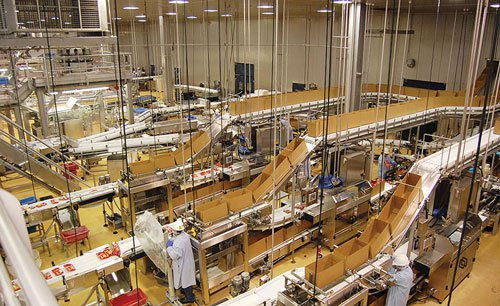Food processing is a commercial operation that manufactures, packages, labels, or stores food for human consumption. This must be done in a commercial kitchen. This finished product is usually sold wholesale, but some food processors will sell directly to the consumer as well.
The U.S. Food and Drug Administration (FDA) regulates food processors that are selling food products through interstate commerce or receiving ingredients through interstate shipment. For most small-sized food processors, which do not have a significant percentage of interstate sales, Eastern Idaho Public Health (EIP) will license for at least the first year, and their status evaluated during subsequent years. The exception would be those businesses involved with any of the following food items:

- Juice
- Seafood
- Low-Acid canned foods (vegetables, soups, etc)
- Acidified Foods (pickled foods)
If you intend to process any of the above products, EIPH may not license you, but will gather your information and refer you directly to the FDA. If you intend to thermal process low-acid foods, you must meet the requirements of 21 CFR 113. If you intend to process acidified foods, you must meet the requirements of 21 CFR 114. Included in these regulations, FDA will require you to complete the Better Process Control School class which is usually instructed by a Processing Authority at a major university.
Even if you are licensed by EIPH, all food processors must register online with the FDA. Some facilities are exempt such as farms, retail food establishments, and restaurants. It is your responsibility to complete the registration process or determine your exemption status. There is no fee to register. Go to FDA’s Registration of Food Facilities and Other Submissions.
The Idaho Department of Agriculture has published a great resource for anyone looking to Start a Specialty Food Business in Idaho. This booklet contains extensive information ranging from food safety to marketing your business to tax information.




